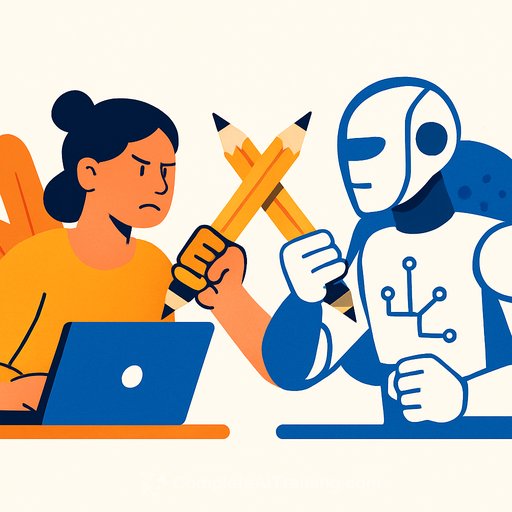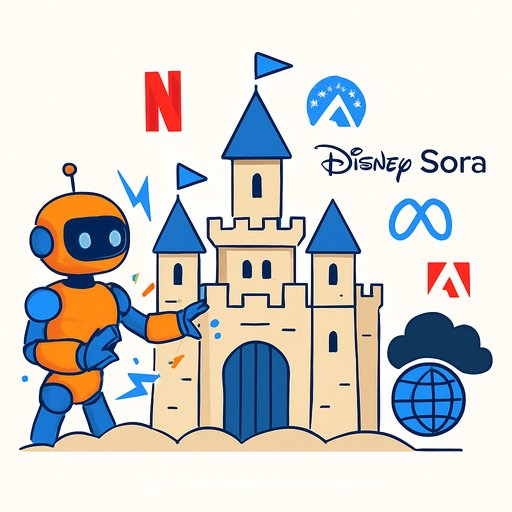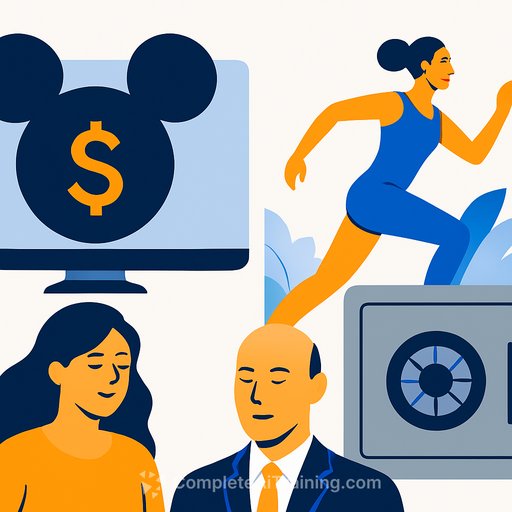AI and Freelance Writing: A Crossroads for Creatives
Artificial intelligence is making its mark on creative professions, especially freelance writing. The big question is how to ensure fairness as AI tools become more widespread. Writers have endured challenging market conditions for years, and without stronger support, AI could push many beyond their limits.
The landscape for freelance writers has grown tougher. Over the last 15 years, average earnings have dropped by 66%, landing around £7,000 annually. Securing fair contracts is already a struggle, and the rise of generative AI adds new pressure on the sustainability of freelance journalism.
Challenges Facing Freelance Journalists
A recent roundtable discussion brought together freelancers, industry voices, and tech representatives to address these concerns. Key issues emerged:
- Media cutbacks and closures, such as those affecting Voice of America and the BBC World Service, threaten the information ecosystem.
- The idea of a Freelance Commissioner has gained traction to represent freelance journalists in government and champion their rights.
- Despite some government initiatives like the Local Democracy Reporting Service and the Digital Markets, Competition and Consumers Act 2024, freelancers still face significant hurdles.
- Breaking into journalism is especially difficult for young people and those from diverse backgrounds without financial support or connections.
Many employers prefer freelancers because it reduces costs, but this shifts financial risks onto the freelancers themselves. While AI might help freelancers in the short term to recover payments, long-term solutions require collective agreements and societies to manage fair remuneration.
Financial and Structural Barriers
Freelancers face hurdles keeping track of their work and ensuring proper payment. Photographers have better control over usage, but most writers do not. New journalists often start with freelance work but lack access to benefits like sick pay, limiting diversity within the profession.
Costs are rising while pay rates stagnate. The ongoing cost of living crisis is pushing many talented freelancers out of journalism. Investigative journalists bear additional costs for equipment and training without sufficient infrastructure to support them.
Freelancers at different career stages encounter unique challenges. Younger journalists face a "perpetual internship culture," making it hard to specialize, while established journalists juggle various types of work to make ends meet. Centralization of media in London further restricts opportunities for those outside the capital.
Transparency and Copyright Issues
There is little transparency around deals between publishers and AI companies regarding content usage. Freelancers often lack the resources to challenge these opaque agreements. The blurring of lines between journalists and influencers adds complexity to defining roles and rights.
Existing copyright laws offer some protection, but enforcement is costly and risky, often leaving freelancers without adequate recourse. This challenge is expected to grow with AI-generated content.
Tech Industry Perspectives
Tech representatives noted that less than 1% of publishers have formal agreements with AI companies to license content. They expressed disappointment at the lack of collective action within the industry to address licensing and attribution challenges.
Efforts are underway to create AI data licensing marketplaces that connect rights holders with AI companies needing licenses. Collective action and clear attribution models are essential to make these systems work, especially for news content.
Current deals tend to be opaque and often exclude licensing for AI training, limiting fair compensation. Learning from international efforts, there is hope to develop structures that fairly value creative work in the AI era.
Collective Solutions and the Role of Legislation
Organizations like the Authors’ Licensing and Collecting Society (ALCS) and the National Union of Journalists (NUJ) have launched initiatives like SCOOP to negotiate collective agreements for freelancers. These aim to secure fair returns from online uses of journalistic work, including AI training data.
Legislation is viewed as critical for long-term solutions. Countries such as Germany, Australia, and New Zealand have laws enabling collective bargaining for freelancers. Europe leads in protections related to AI and digital content distribution.
Getting tech companies to comply with attribution and licensing rules requires the right incentive structures, often backed by regulation. While voluntary measures may help in the short term, regulatory frameworks are necessary to ensure fairness.
Looking Ahead
Freelance creatives must recognize their unique challenges and symptoms compared to larger news organizations to identify effective solutions. AI technology will continue to advance, making immediate and medium-term actions essential.
Policy interventions could include stronger copyright laws, taxes on tech companies to support public services, and regulations that empower collective bargaining. These steps can help secure fair remuneration for creators and sustain quality journalism for society.
For creatives looking to adapt and stay informed on AI tools and their impact on creative professions, exploring practical courses and resources can be valuable. Platforms like Complete AI Training offer accessible learning paths tailored to various skills and jobs in the AI space.
Your membership also unlocks:






